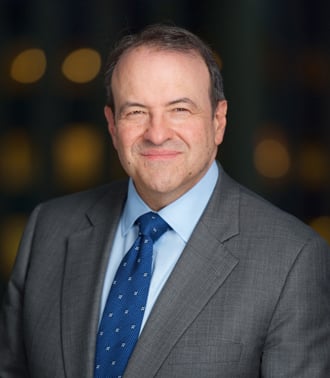“No” Means “No”: The Government’s Veto Over Public Disclosure Bar Dismissals
In a recent decision, U.S. ex rel. Vermont National Telephone Co. v. Northstar Wireless LLC, No. 15-0728, __ F. Supp. 3d __, 2023 WL 7407301 (D.D.C. Nov. 19, 2023), a district court confirmed that the government’s veto power over a dismissal based on the public disclosure bar of the False Claims Act (FCA) is absolute and can be effectuated by a mere notice of opposition.
In 2014, the Federal Communications Commission (FCC) offered 1,614 Advanced Wireless Services licenses in an auction. The agency offered 25% bidding credits to “very small businesses” (VSBs) having less than US$15 million in attributable revenue. To participate in the license auction, two affiliates of DISH Network submitted applications stating that they were VSBs, which the FCC preliminarily approved. The VSB designation dropped the price of the affiliates’ winning bids from approximately US$13.5 billion to US$10 billion. After the auction, other bidders petitioned the FCC to deny the affiliates’ applications, asserting that DISH Network effectively controlled both affiliates, which meant that their revenues were larger than the VSB-certification threshold. The FCC agreed and cancelled the credits.
A competitor, Vermont National Telephone Company, then filed a qui tam suit against DISH Network and its affiliates, alleging that they violated the FCA by making false certifications to fraudulently secure bidding credits. The district court dismissed the complaint based on the government-action bar and relator’s failure to plead materiality, but the circuit court reversed and remanded. For more information on the D.C. Circuit’s decision, see our previous Qui Notes post.
On remand, defendants moved to dismiss the claims based on the public disclosure bar. The government responded by submitting to the court a notice of opposition to the dismissal. Although federal courts have widely employed the public disclosure bar to block parasitic claims based on public information, the post-2010 version of the public disclosure bar provides the government with a “veto” when it “oppose[s]” the dismissal.
Defendants made two arguments in an attempt to resist the government’s veto: (1) the language of the FCA requires the government to provide something more than “a simple ‘notice’ of opposition” to a dismissal under the public disclosure bar and (2) the court retains the discretion to dismiss under the public disclosure bar notwithstanding the government’s opposition.
The court rejected both arguments. The court held that the “statute’s plain text” requires nothing more from the government than that it “opposes” dismissal, which it could do through “a simple ‘notice’ of opposition.” As for whether the court retains any discretion about dismissal once the government indicates its opposition, the court rejected defendants’ argument, characterizing defendants’ interpretation as “particularly strained.” The court reasoned that the public disclosure bar is mandatory because it uses the word “shall” — not “may.” Thus, the court ruled, the law requires courts to “permit a claim to proceed where dismissal is opposed by the United States.”
Lastly, the court disagreed that the constitutional avoidance canon prevents the government from opposing dismissals of FCA claims. The court explained that no jurisdiction-related constitutional issue arises because the public disclosure bar veto does not enable the executive branch to remove cases from courts’ jurisdiction. Rather, the exception merely allows the government to exercise its own right to maintain FCA claims that relators assert on its behalf.
The D.C. district court's decision delineates the sweeping power of the government veto in cases where the public disclosure bar might otherwise apply. The government may, with a simple notice of opposition, thwart dismissal of a parasitic qui tam suit where dismissal might otherwise be required under the public disclosure bar. We at Qui Notes will continue to monitor similar cases addressing the public disclosure bar and the use of the government veto.
© Arnold & Porter Kaye Scholer LLP 2023 All Rights Reserved. This blog post is intended to be a general summary of the law and does not constitute legal advice. You should consult with counsel to determine applicable legal requirements in a specific fact situation.


